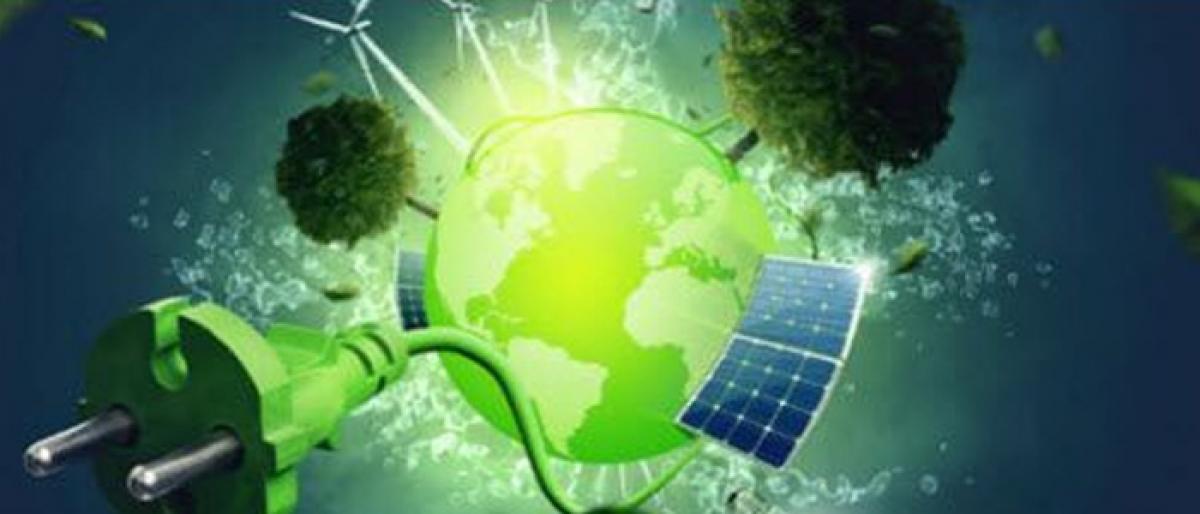Live
- Kannada actress Shobhitha Shivanna found dead in her Gachibowli flat
- All not well with wellness centres
- Malas raise their voice against categorisation of SCs
- Cops issue traffic advisory for ‘Pushpa-2’ pre-release event today
- Govt has failed in all sectors in State: Harish
- Cops bust gang, 3 held with ganja worth Rs 18 lakh
- 172 caught for drunken driving
- Police raid brothel house, 3 held
- CMRF, a real saviour for hapless, thanks to big-hearted Revanth
- BJP releases chargesheet of ‘6 lies, 66 frauds’ of Congress
Just In

In a worrying development, global CO2 emissions from energy jumped by 1.4 percent in 2017, the first increase in three years. The trend indicates that global efforts to reduce emissions are “insufficient,” according to a new report from the International Energy Agency.
In a worrying development, global CO2 emissions from energy jumped by 1.4 percent in 2017, the first increase in three years. The trend indicates that global efforts to reduce emissions are “insufficient,” according to a new report from the International Energy Agency. Total energy-related emissions jumped by 1.4 per cent to 32.5 gigatonnes (Gt), the equivalent of 170 million additional cars. The prior three years, energy-related emissions were flat, raising hopes that the curve might bend down, according to oilprice.com.
Strong economic growth pushed global energy demand up by 2.1% last year, the Paris-based International Energy Agency (IEA) said in a report. Some 70% of those additional needs were met by fossil fuels oil, gas and coal, pushing global energy-related carbon emissions up by 1.4%, after three years of remaining flat. The rest was covered mostly by renewables.
Founded in 1974, the IEA was initially designed to help countries co-ordinate a collective response to major disruptions in the supply of oil, such as the crisis of 1973/4. While this remains a key aspect of its work, the IEA has evolved and expanded significantly.
The IEA examines the full spectrum of energy issues including oil, gas and coal supply and demand, renewable energy technologies, electricity markets, energy efficiency, access to energy, demand side management and much more. Through its work, the IEA advocates policies that will enhance the reliability, affordability and sustainability of energy in its 30 member-countries and beyond.
Today, the IEA is at the heart of global dialogue on energy, providing authoritative analysis through a wide range of publications, including the flagship World Energy Outlook and the IEA Market Reports; data and statistics, such as Key World Energy Statistics and the Monthly Oil Data Service; and a series of training and capacity building workshops, presentations, and resources.
The four main areas of IEA focus are: Energy Security i.e., promoting diversity, efficiency, flexibility and reliability for all fuels and energy sources; Economic Development i.e., supporting free markets to foster economic growth and eliminate energy poverty; Environmental Awareness including analysing policy options to offset the impact of energy production and use on the environment, especially for tackling climate change and air pollution; and, Engagement Worldwide i.e., working closely with partner countries, especially major emerging economies, to find solutions to shared energy and environmental concerns.

© 2024 Hyderabad Media House Limited/The Hans India. All rights reserved. Powered by hocalwire.com







